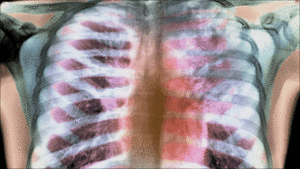CNA & CEU COURSES

Are you ready for a career in health care? A rewarding and fulfilling yet challenging career where you get to make a difference everyday? Our program will help you launch your new career in just 5 weeks. Enjoy a solid job security and flexible hours in your new career as a Nurse Aide. According to the U.S. Bureau of Labor Statistics, employment of nursing assistants and nurse aides is expected to grow by 20 percent nationally from 2010 to 2020, faster than the average for all occupations, due to growing elderly population. Our Nurse Assistant Program curriculum objective is to provide training and certification preparation for Certified Nurse Aide candidates. There is an urgent need for competent nurse aides to join the increasing demand of nurse assistants in the hospital settings and long term care facilities. Our goal is to prepare students to be competent nursing assistants that are knowledgeable and safe, have a caring attitude, and are able to provide excellent nursing care.
Our Nurse Assistant Training Program course provides the student with specific skills training and competency required to obtain employment as a nursing assistant, patient care partner, handicapped children’s aide, school health aide, etc. Following successful completion of the core curriculum, the student may test for Certification as a Nursing Assistant. The program, while exposing students to nursing and related medical careers, prepares the student for application to Licensed Vocational Nursing programs or to begin the college level requirements for Registered Nursing and other health care fields.
Our Nurse Assistant Program will prepare you to enter the exciting and growing medical field as a health care worker in settings such as hospitals, clinics, Doctor’s offices, Nursing Homes and Nursing Agencies.
We will train you in just 5 weeks, with a program that includes classroom learning, hands-on skills training in our modern skills lab, and actual experience in a health care facility. We will provide you with extensive exam preparation and get you prepared to take the California CNA Certification test.
To be enrolled in the Nurse Aide program, all students must be age 16 and older and must meet the following requirements.
• Must be able to read English at the 5th grade level or higher (an English assessment test is required to enroll)
• Must possess a valid California ID and Social Security Number
• Must have no prior convictions and if they do, must disclose these convictions as required by the California Department of Public Health (CDPH).
• Must undergo a background check (LIVESCAN) as required by by the California Department of Public Health (CDPH).
• Must have access to a computer or an IPAD with a stable internet connection.

Our Certified Nurse Assistant program is licensed through the State of California, Health & Human services, Department of Public Health, Licensing & Certification Section. The public, prospective students, and applicants can access information and all requirements and forms at Regional Testing Center. Tuition cost $ $1400 and does not include books ($35), uniforms ($20), and testing fees ($120). A non-refundable registration fee of $100 is due with the application. A minimum deposit of $600 and the $100 registration fee is required to be enrolled in the program. Don’t wait, space is limited so call us now to reserve our spot for our next class starting soon. Call us and inquire about our weekend only CNA program.
Available Courses

The Aging Process (1 CEU)
ECONOMICS OF AGING With baby boomers living longer, Nurse Assistants are more likely to work with older adults in a Nursing home, acute hospitals or Assisted Living Facilities. Despite stereotypes, most of the older adults age well.

Psychosocial Needs of the Elderly (2 CEU)
Assisting residents to meet their basic needs includes their emotional and mental well-being, also called psychosocial needs. These needs are as important as the physiological needs discussed previously. All residents living in a long-term care facility are no different from other people who need to feel worthwhile, loved, and secure.

Compliance at the Workplace…How not to get fired (1 CEU)
What is Compliance? Compliance is defined as the act of conforming, acquiescing, or yielding. It is a state of being in accordance with established guidelines or specifications. Compliance ensures that organizations are abiding by both industry regulations and government legislation, including state and federal laws.

GUIDE TO BOWEL CONTROL
(I CEU)
Fecal incontinence, also called bowel incontinence, is the unintentional loss of stool (feces) or gas (flatus) due to a failure of one or more of the components that allow the body to control the evacuation of feces. It is the inability to control bowel movements, causing feces to leak unexpectedly from the rectum.

FAILURE TO THRIVE FOR THE ELDERLY (1 CEU)
Failure to thrive for the elderly patients is not a failure to develop, but it is simply a progressive functional decline that is multifactorial and may be caused by chronic concurrent diseases and functional impairments.

Breastfeeding Module for PostPartum CNA’s (2 CEU’s)
There is no doubt that breastfeeding is fundamental for the health and development of children. According to the WHO estimates, over one million children die each year from diarrhea, respiratory and other childhood infections because they are not adequately breastfed.

Deadly Virus: Ebola Overview
(2 CEU’s)
Ebola virus disease, formerly known as Ebola haemorrhagic fever, is one of the most lethal viruses that infects humans and primates. It is a highly virulent communicable pathogens that cause life-threatening systemic illness and hemorrhagic fever.

Pneumonia (2 CEU’s)
Pneumonia is an ancient disease, whose clinical picture was described 2,500 years ago by Hippocrates with symptoms of fever, pleuritic chest pain, productive cough, rales, and dyspnea. These classic symptoms still hold true today.

Hourly Rounding (1 CEU)
Hourly rounding is a systematic, proactive, evidence-based nursing practice of regularly checking on patients’ needs in an hourly basis using the 5 Ps with the promise to return in 1 hour.

Neutropenic Fever, an oncology emergency (1 CEU)
Fever is an abnormally high body temperature. Neutropenic fever (also known as febrile neutropenia) remains one of the most commonly encountered oncologic emergencies, as the number of cancer patients continues to grow.

Influenza (1 CEU)
Influenza is a respiratory infection caused by influenza virus. Commonly known as the “flu”, influenza is an acute febrile respiratory illness that occurs in annual outbreaks of varying severity and commonly in unpredictable worldwide epidemics (pandemics), caused by infection with influenza type A or B virus.

Workplace Violence (1 CEU)
he National Institute for Occupational Safety and Health (NIOSH) , defines workplace violence as “…any physical assault, threatening behavior, or verbal abuse occurring in the work setting” (NIOSH, 1996). Workplace violence is a serious occupational risk and very prevalent among nursing staff.

Body Mechanics (1 CEU)
Nursing job requirements includes lifting, moving and carrying objects. Not surprisingly, nursing ranks among the worst occupations in relation to work-related injuries pushing nearly half of the profession into an early retirement.

HIV Infection and AIDS (2 CEU’s)
Human immunodeficiency virus (HIV) infection is caused by either HIV-1 or 2 HIV-2. These viruses target specific subsets of T cells and eventually cause immune dysfunction.

Cultural Competency (1 CEU)
Cultural competence in health care describes the ability of systems to provide care to patients with diverse values, beliefs and behaviors, including tailoring delivery to meet patients’ social, cultural, and linguistic needs.

Dysphagia (1 CEU)
Introduction Dysphagia is the loss or the impaired ability to chew and/or swallow. It is a disorder of swallowing due to obstruction, impaired coordination or muscular weakness that affects the biomechanics of the swallow.

Let’s keep them moving, promoting mobility (1 CEU)
An estimated half of hospitalized adults are 65 years of age or older and the proportion of hospitalized adults who are elderly is only expected to increase as the population ages. Hospitalization is one of the greatest risk factor for immobility and functional decline.

It’s all about HIPPA (1 CEU)
These days it’s all about HIPPA in Health Care. The Federal Health Insurance Portability and Accountability Act of 1996, known as HIPAA, was passed to establish a national framework for security standards and protection of confidentiality with regard to health care data and information.

The power of teamwork (1 CEU)
A subject of a number of studies, teamwork has been associated with a higher level of job staff satisfaction, a higher quality of care, an increase in patient safety, greater patient satisfaction with their care, more productivity, falls reductions and a decreased stress level.

Sleep Deprivation (1 CEU)
Introduction Although humans spend about one-third of their lives asleep, most individuals know very little about sleep. The words “fatigue” and “sleepiness” are often used interchangeably, but their meaning is quite different.

Communication with the Cognitively Impaired (1 CEU”s)
One of the biggest challenges for Nurse Assistants and other caregivers is working with clients who are cognitively impaired. Cognitively-impaired patients have difficulty with one or more of the basic functions of their brain, such as perception, memory, concentration and reasoning skills.

Tame Your Stress: Stress Management (1 CEU)
Introduction Stress is basically a feeling of emotional or physical tension. Stress describes a person’s physical or emotional response to demands or pressures that they may experience from time to time.

TUBERCULOSIS (2 CEU’s)
Introduction Tuberculosis, commonly known as TB, is an airborne bacterial infection caused by Mycobacterium and can spread through the lymph nodes and bloodstream to any organ in your body. It is most often found in the lungs.

The Ugly Face of MRSA (2 CEU’s)
Introduction Staphylococcus aureus is a common bacteria found on the skin or in the nose. It is often referred to as “Staph” for short. About one person out of every three has these bacteria on them. MRSA is a resistant strain of S. aureus.

Tame Your Stress: Stress Management (1 CEU)
Introduction Stress is basically a feeling of emotional or physical tension. Stress describes a person’s physical or emotional response to demands or pressures that they may experience from time to time.

Preventing Pressure Ulcers
(2 CEU’s)
INTRODUCTION A pressure ulcer or bed sore is an injury to the skin caused by constant pressure over a bony area which reduces the blood supply to the area. Pressure sores, also called decubitus ulcers or bed sores, are a big problem in hospitals, nursing homes and patient homes.

Catheter-Associated Urinary Tract Infections (1 CEU)
A urinary tract infection (UTI) is an infection involving any part of the urinary system, including urethra, bladder, ureters, and kidney. UTIs are the most common type of healthcare-associated infection reported to the National Healthcare Safety Network (NHSN).




























